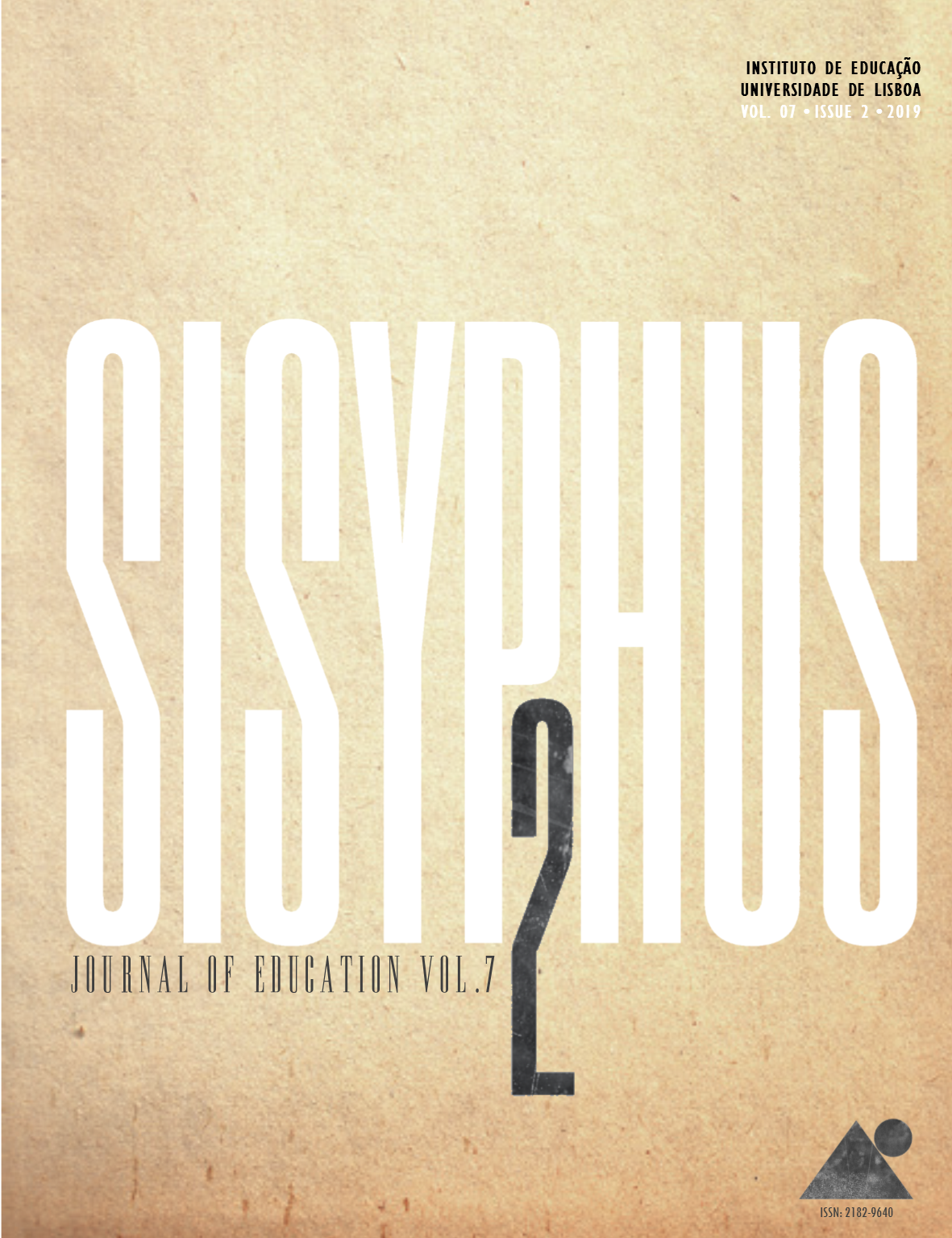Learning Cities
Participatory-focused Community Development in Adult and Lifelong Education
DOI:
https://doi.org/10.25749/sis.17702Palabras clave:
learning cities, adult education, lifelong education, research in adult education, community developmentResumen
This paper will analyse the conceptual evolution and development of learning cities and regions in adult education research work. Adult education research has got a great potential to investigate concrete mechanisms of learning city-region constructions and to estimate the changing nature and structures of learning city-region models based on the examples of two learning cities, Cork in Ireland and Pécs in Hungary.
Therefore, the paper tries to discover some major aspects of learning city-region models and different learning city-region collaborations at local-regional levels, emphasized by the OECD and UNESCO, which may enhance both participation and performance in learning of adults, but also, the learning of other age groups affecting transgenerational dimensions of learning and that of community development.
Descargas
Citas
Allison, J., & Keane, J. (2001). Evaluating the role of the Sunshine Coast University (USC) in the regional economy. Local Economy, 16(2), 123-141.
Amin, A., & Thrift, N. (1995). Institutional issues for the European regions: from markets and plans to socio-economic and powers of association. Economy & Society, 24, 41-66.
Boekema, F., Morgan, K. J., Bakkers, S., & Rutten, R. (Eds.) (2000). Knowledge, innovation and economic growth: the theory and practice of learning regions. Northampton, MA: Edward Edgar.
Cannon, T., Nathan, M., & Westwood, A. (2003). ‘Welcome to the Ideopolis’, Work Foundation Working Paper. London: The Work Foundation.
Cooke, P., & Morgan, K. (1998). The Associational Economy. Oxford: Oxford University Press.
Department of Education and Science. (2000). Learning for Life: White Paper on Adult Education. Dublin: Government of Ireland. Retrieved from: https://www.education.ie/en/Publications/Policy-Reports/fe_aduled_wp.pdf
EC – European Commission. (2002). European Networks to promote the local and regional dimensions of Lifelong Learning. The R3L initiative. Call for Proposal. (EAC/41/02) – (2002/C 174/06). Brussels: EC.
Edquist, C. (Ed.) (1997). Systems of Innovation: technologies, institutions and organisations. London: Pinter.
Florida, R. (1995). Towards the learning Region. Futures, 27(5), 527-536.
Keane P., Lane, Y., Neylone, T., & Osborne M. (2013). The Learning Festival: Pathway to Sustainable Learning Cities? Adult Learner: The Irish Journal of Adult and Community Education, 90-99.
Keeble, D., Lawson, C., Moore, B., & Wilkinson, E. (1999). Collective learning processes, networking and institutional thickness in the Cambridge region. Regional Studies, 33(4), 319-332.
Longworth, N. (1999). Making Lifelong Learning Work: Learning Cities for a Learning Century. London: Kogan Page.
Longworth, N., & Franson, L. (Eds.) (2001). The TELS Project Towards a European Learning Society. Final Report, European Commission, Socrates Program, European Lifelong Learning Initiative.
Lundvall, B-A., & Johnson, B. (1994). The learning economy. Journal of Industry Studies, 1, 23-42.
Neylon, T. (2016). Case Study 06 Ireland – Cork. In R. Valdes-Cotera, N. Longworth, K. Lunardon, M. Wang, S. Jo & S. Crowe (Eds.), Unlocking the Potential of Urban Communities. Case Studies of Twelve Learning Cities (pp. 72-84). Hamburg: UIL.
Neylon, T., & Barrett, D. (2013). Why Cork’s Learning Festival is committed to EcCoWell in Precedings of Cities Learning Together: Local Communities in the Sustainable and Healthy Learning Cities. Hong Kong. Retrieved from: https://www.scribd.com/document/188525260/FINAL-Precedings-WEBcopy2013-11-28
Ó Tuama, S. (2016). Cork Learning City: Building a Community Wide Learning Environment. Personal- und Organisationsentwicklung, 3-4(11), 78-83.
Organisation for Economic Co-operation and Development. (2000). Learning Regions and Cities: Knowledge, Learning and regional Innovation Systems. Paris: OECD.
Organisation for Economic Co-operation and Development. (2007). Higher Education and Regions. Globally Competitive, Locally Engaged. Paris: OECD-IMHE.
Razavi, M. (1997). Learning to Industrialize: a comparative study of four industrial poles in Brazil and Iran (Dissertation submitted, Graduate Program in Urban Planning and Policy Development). Rutgers University, New Brunswick, New Jersey, United States of America.
Senge, P. (1990). The Fifth Discipline: The Art and Practice of the Learning Organisation. New York: Currency.
Tooke, J. (2000). Learning regions: the politics of knowledge at work. Planning and Environment A, 32(5), 764-768.
UNESCO (2013). Report on Conference on Learning Cities in Beijing. Retrieved from: http://uil.unesco.org/lifelong-learning/learning-cities/conference-report-international-conference-learning-cities-beijing
Wolfe, D. A., & Gertler, M. S. (2001). Globalization and Economic Restructuring in Ontario: From Industrial Heartland to Learning Region? European Planning Studies, 9(5), 575-592.
Yarnit, M. (2000). Towns, cities and regions in the learning age: a survey of learning communities. London: DFEE.
Descargas
Publicado
Número
Sección
Licencia
Copyright (c) es propiedad de Sisyphus – Journal of Education. Sin embargo, alentamos que los artículos publicados en la revista se publiquen en otro lugar, siempre que se solicite el permiso de Sisyphus y los autores incorporen nuestra cita original y un enlace a nuestra página web.
Política de Autoarchivo
Los autores pueden autoarchivar la versión final publicada de sus artículos en repositorios institucionales, temáticos o páginas web personales e institucionales.
Suscriptor de DORA
El Instituto de Educação de la Universidade de Lisboa, editor de Sisyphus, es uno de los suscriptores de la Declaración de San Francisco sobre la Evaluación de la Investigación (DORA).





